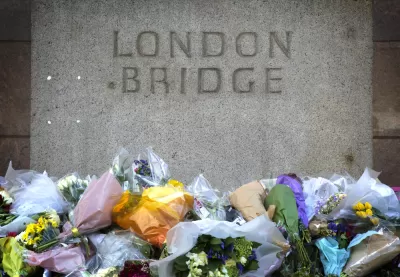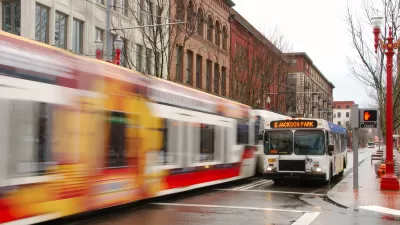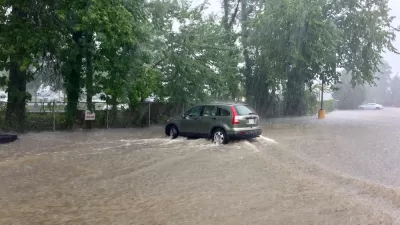Planning for resilience might mean more than preparing for climate change, according to this opinion piece. Urban terrorism, in its current, tragic form, will require planners to prepare for the worst.

Jon Coaffee, a professor of urban geography in the Department of Politics and International Studies at the University of Warwick, takes to the pages of The Washington Post to make an appeal for planners to prepare for "a new onslaught of urban terrorism."
"State security services have long been occupied with defending vulnerable urban spaces against attack," writes Coafee, "but until recently, the style of terrorist attack — the targeting of high-profile commercial or government buildings — seldom affected everyday city life." But a recent string of terrorist attacks in Europe has relied on relatively low-tech devices like trucks and knives.
According to Coafee, "the modus operandi of terrorists has changed significantly in recent years and counter-responses, including urban planning, must adapt to this new reality."
The idea of preparing for the perpetual threat of terrorism is a challenging proposition at best. It's impossible, according to Coafee,"to perfectly balance urban aesthetics and livability within secure design, just as it’s impossible to prevent every kind of attack in any open society." Still, he writes, measures can be taken.
Planetizen correspondent Irvin Dawid has noted some of the public safety infrastructure that works to deter terrorism, such as sidewalk bollards. In the past, anti-terrorism planning has also focused on transit and drinking water supplies.
FULL STORY: Urban terrorism isn’t going to stop. Can city planners help reduce its lethal impact?

Maui's Vacation Rental Debate Turns Ugly
Verbal attacks, misinformation campaigns and fistfights plague a high-stakes debate to convert thousands of vacation rentals into long-term housing.

Planetizen Federal Action Tracker
A weekly monitor of how Trump’s orders and actions are impacting planners and planning in America.

San Francisco Suspends Traffic Calming Amidst Record Deaths
Citing “a challenging fiscal landscape,” the city will cease the program on the heels of 42 traffic deaths, including 24 pedestrians.

Defunct Pittsburgh Power Plant to Become Residential Tower
A decommissioned steam heat plant will be redeveloped into almost 100 affordable housing units.

Trump Prompts Restructuring of Transportation Research Board in “Unprecedented Overreach”
The TRB has eliminated more than half of its committees including those focused on climate, equity, and cities.

Amtrak Rolls Out New Orleans to Alabama “Mardi Gras” Train
The new service will operate morning and evening departures between Mobile and New Orleans.
Urban Design for Planners 1: Software Tools
This six-course series explores essential urban design concepts using open source software and equips planners with the tools they need to participate fully in the urban design process.
Planning for Universal Design
Learn the tools for implementing Universal Design in planning regulations.
Heyer Gruel & Associates PA
JM Goldson LLC
Custer County Colorado
City of Camden Redevelopment Agency
City of Astoria
Transportation Research & Education Center (TREC) at Portland State University
Jefferson Parish Government
Camden Redevelopment Agency
City of Claremont





























